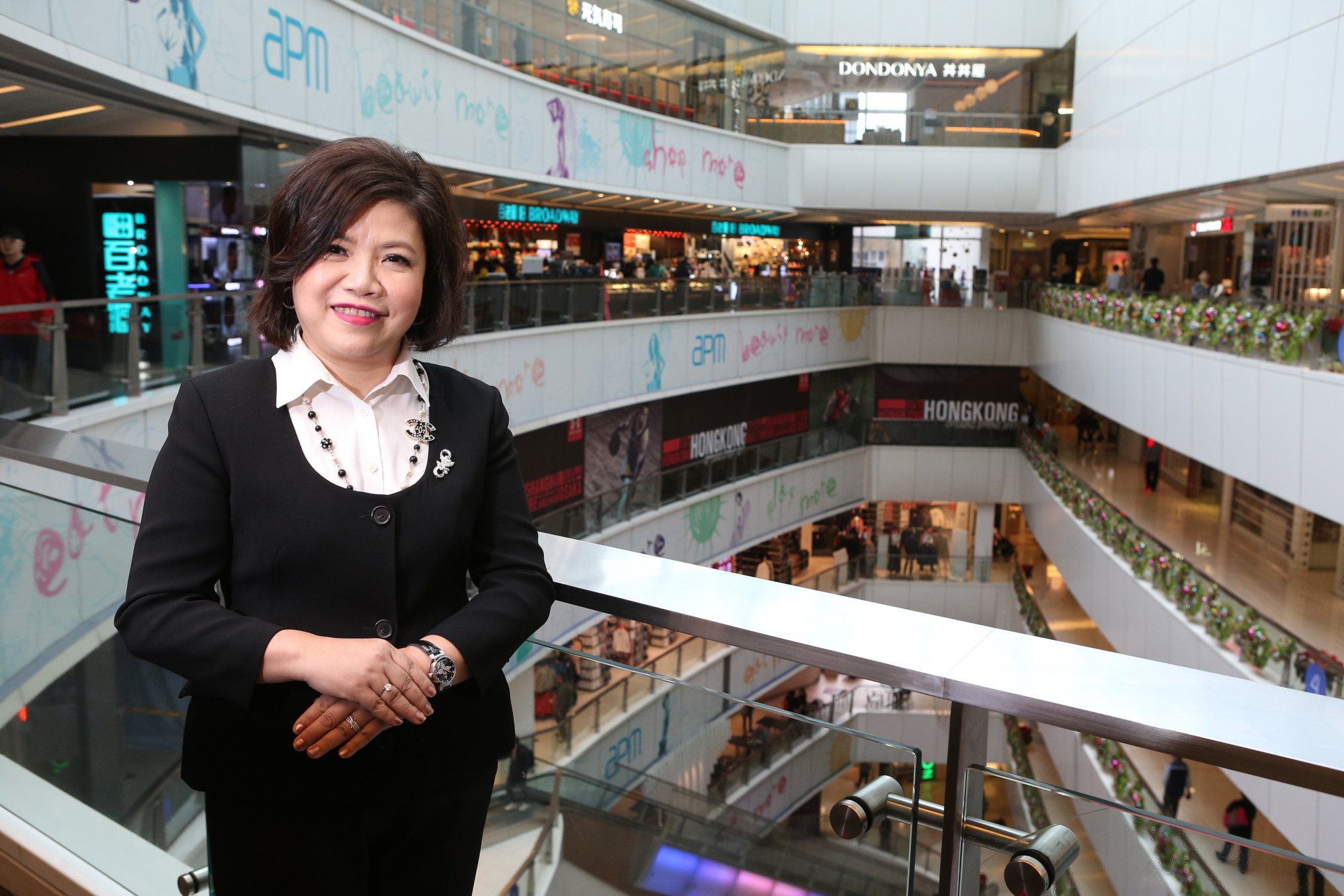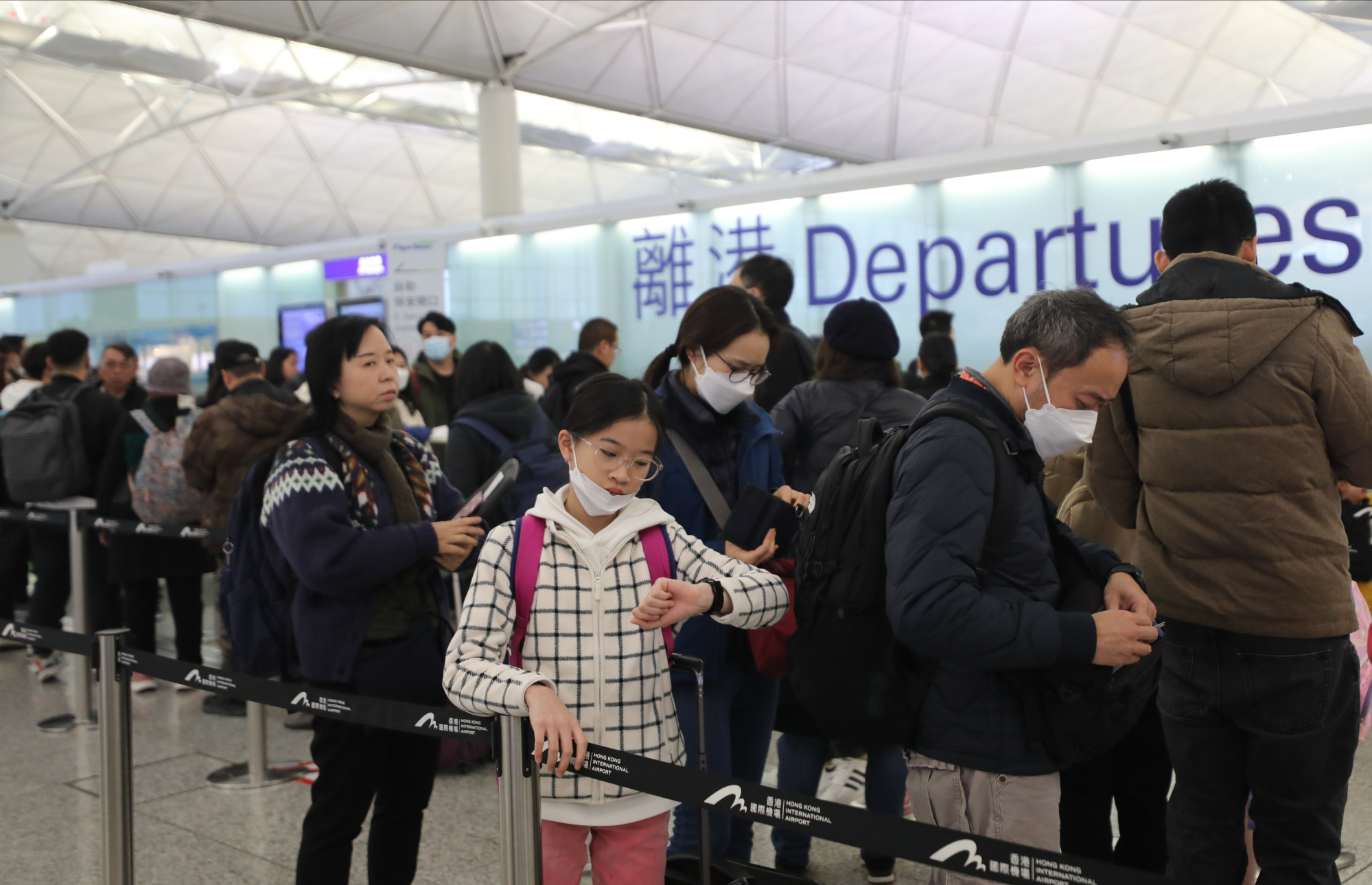
Hong Kong shopping centres shun one-size-fits-all strategy over Christmas holiday to widen customer appeal
- Malls shake up promotion efforts over festive break, including doubling rebates and pet-friendly policies, to counter change in tastes among local shoppers and tourists
- ‘The market situation has indeed changed a lot after the epidemic, and shopping malls must be more flexible and actively expand their customer base,’ industry leader says
Hong Kong shopping centres are shaking up their promotion efforts over the Christmas holiday to counter a change in spending habits among mainland Chinese tourists and a wave of residents heading across the border to splash out.
Some mall operators have doubled their rebates as others adopted pet-friendly policies to attract more shoppers.
Maureen Fung Sau-yim, executive director of Sun Hung Kai Properties, which operates dozens of shopping centres across the city including Kwun Tong’s APM and the IFC Mall in Central, said the company had adopted more agile business strategies and made a conscious effort to boost its appeal among different demographics.
“The market situation has indeed changed a lot after the epidemic, and shopping malls must be more flexible and actively expand their customer base,” she said on Friday.

K11 Group, which runs K11 Musea and K11 Art Mall in Tsim Sha Tsui, as well as the newly opened 11 Skies in Chek Lap Kok, also said it was conscious of the changing retail environment.
“Tourists nowadays do not only look for fine dining and shopping experience, but also journeys,” a company representative said.
Experts said the spending habits among mainland tourists had changed as many were seeking cultural experiences instead of extravagant shopping trips, while residents were heading to places such as Japan and Shenzhen for major holidays.
“The MixC in Shenzhen looks more luxurious, like those beneath the casinos in Macau,” he said. “The ones in Hong Kong are nothing special.”
Fung added that Hong Kong’s major malls, such as Times Square and IFC, mainly focused on retail and lacked spaces where families could have fun together.
Huang Xiaoxing, an education company founder based in Shenzhen and on a business trip in Hong Kong, said she found the shopping centres in both cities to be quite similar.
“There aren’t particularly significant differences between malls in the two cities,” the 30-year-old said.
Only a few brands and products in Hong Kong were unavailable at shopping malls across the border, she added.
The Immigration Department has estimated that the city will handle more than 9 million trips by people during the Christmas and New Year holidays
Sun Hung Kai’s Fung said Christmas was a traditional peak season for retailers and the company’s shopping centres were launching “targeted offers” to attract customers grouped into two major categories.
“The first is high-spending tourists and business travellers in traditional tourist areas; the second is local customers who spend money in regional areas,” she said.
The first category could enjoy rebates of up to 30 per cent, double the percentage offered last year, she added.
Fung said the company also hoped to encourage “repeat consumption” among residents looking for daily necessities through a customer lottery and “Thank You Days” for loyal shoppers.
Local shoppers had become more focused on immersive experiences and their health after the pandemic, with mall operators working to increase the ratio of activity-based outlets, such as those covering fitness, yoga and dance, cake and craft making, as well as healthcare and sports product stores, she said.
K11 Group said its strategy of bringing together art, culture, innovation and commerce “to create an immersive retail environment” had been a success.

The company pointed to K11 Musea, where it had created collaborative and immersive events using brands, artists and communities that were “highly successful in terms of driving footfall and encouraging longer stays”.
Events at the shopping centre included art exhibitions and a “pet garden” to encourage pet owners to spend time there.
The mall is also running several holiday-themed events, including a Christmas market until January 1, as well as surprise song and dance performances.
The Hong Kong Retail Management Association on December 19 also launched a shopping campaign to encourage locals and visitors to spend more, bringing together more than 1,000 brands offering gifts and discounts.
Association chairwoman Annie Tse Yau On-yee said residents were expected to head overseas or to the mainland as it was the first Christmas since the borders had reopened, which would “no doubt” affect business.
According to government figures, total retail sales in Hong Kong for October stood at HK$33.7 billion (US$4.3 billion), a year-on-year increase of 5.6 per cent, but worse than market expectations of 9.9 per cent.
A recent survey from real estate firm JLL also predicted that local retail rents were unlikely to return to their historic market peaks in the next five years because of a drop in domestic consumption and a rise in online shopping.
Secretary for Culture, Sports and Tourism Kevin Yeung Yun-hung earlier said the government would take the lead in cross-departmental efforts to boost consumption in the city, but it was also up to other sectors to come up with activities and discounts to attract customers.


